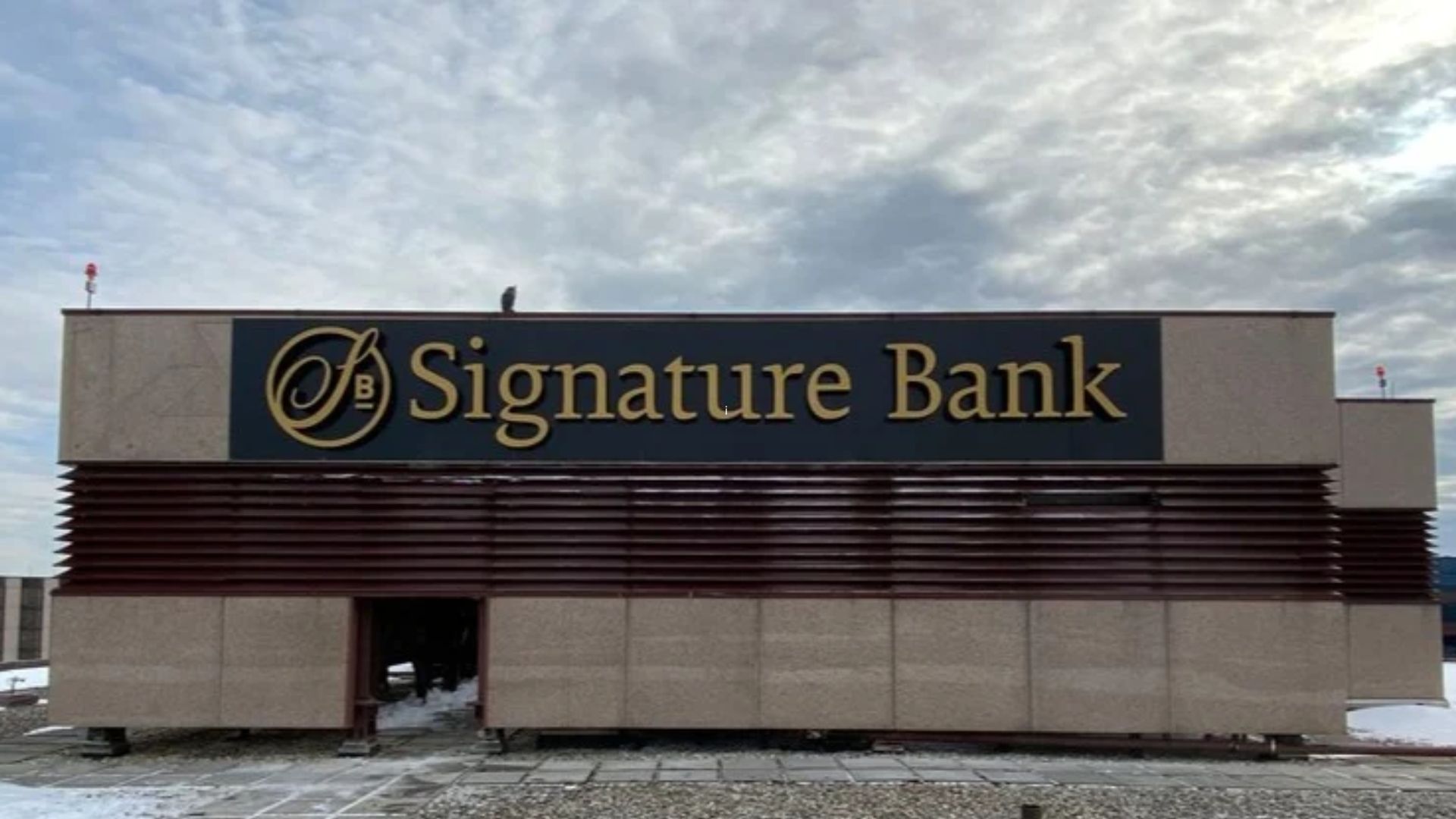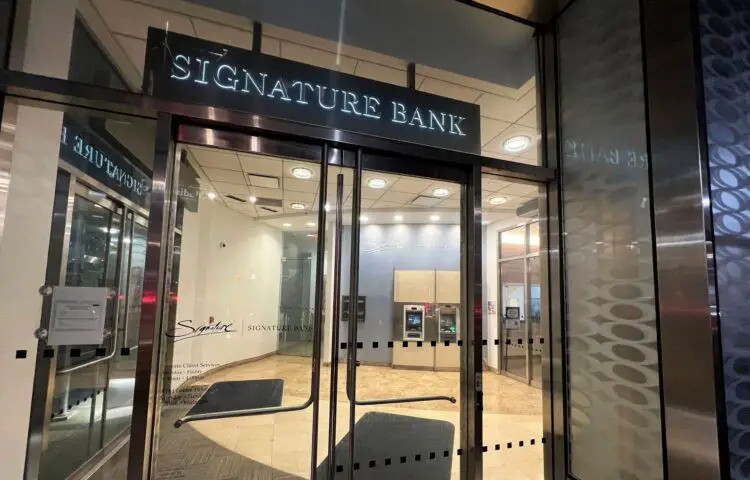- The US regulators have shut down Signature Bank, a significant lender in the cryptocurrency industry, to curb the expanding banking crisis.
- The regulators have also seized deposits at Silicon Valley Bank, which was struggling and had triggered a run on the bank’s deposits.
- The Federal Reserve and Treasury Department have established an emergency program to provide support for deposits at both Signature Bank and Silicon Valley Bank.
In an effort to curb the expanding banking crisis, American regulatory authorities have taken action to close down Signature Bank, a significant player in the cryptocurrency lending sector, based in New York.
“We are also announcing a similar systemic risk exception for Signature Bank, New York, New York, which was closed today by its state chartering authority,” Treasury, Federal Reserve, and FDIC said in a joint statement Sunday evening.
Signature Bank is shut down by regulators
According to banking regulators, customers with funds deposited in Signature Bank will be able to retrieve their money in full. This action mirrors the steps taken to guarantee the return of deposits to customers of the now-defunct Silicon Valley Bank.
“All depositors of this institution will be made whole. As with the resolution of Silicon Valley Bank, no losses will be borne by the taxpayer,” the regulators said.
In the most substantial banking collapse in the United States since the financial crisis of 2008 and the second-largest in history, Silicon Valley Bank was closed by regulators and its deposits seized on Friday. This action was taken following the institution’s report of financial difficulties, which triggered a withdrawal of deposits by its customers.
Signature Bank is a significant player in the cryptocurrency industry, second only to Silvergate. However, Silvergate announced last week that it would soon be liquidated. As of Friday, Signature Bank’s market value stood at $4.4 billion, a decline of 40% this year, according to FactSet data.

Based on a securities filing, Signature Bank held $110.4 billion in total assets and $88.6 billion in total deposits as of December 31.
In order to prevent a more extensive financial crisis, the Federal Reserve and Treasury Department have established an emergency program to provide support for deposits at both Signature Bank and Silicon Valley Bank, utilizing the Federal Reserve’s emergency lending authority. Many depositors did not have insurance coverage because of the $250,000 deposit guarantee.
While depositors will be able to recover their funds, equity and bondholders at both banks will suffer losses, according to a senior official from the Treasury. The FDIC’s deposit insurance fund will be utilized to reimburse depositors.
Concerns about the crypto world
The recent shutdown of Signature Bank and Silicon Valley Bank by US regulators has triggered concerns about the stability of the cryptocurrency industry and the broader financial system. The move has been taken to prevent the spreading banking crisis, which has been compounded by the ongoing COVID-19 pandemic.
These developments highlight the need for greater scrutiny of the cryptocurrency industry and its lending practices. While cryptocurrencies have gained popularity as an alternative form of investment, they remain highly volatile and are subject to manipulation by market actors. The recent events have shown that these factors can pose significant risks to the financial system.
Moreover, the use of deposit insurance funds to reimburse depositors raises questions about the effectiveness of the current regulatory framework. There is a need for a more comprehensive and coordinated approach to regulating the financial industry to ensure stability and protect the interests of customers and investors. Some, like the former SEC chairman, are positive about the future of crypto technology.
In conclusion, the shutdown of Signature Bank and Silicon Valley Bank serves as a wake-up call for regulators and policymakers to re-evaluate their approach to the financial industry. This should involve closer scrutiny of the cryptocurrency sector and greater collaboration between regulatory authorities to prevent similar incidents in the future.





